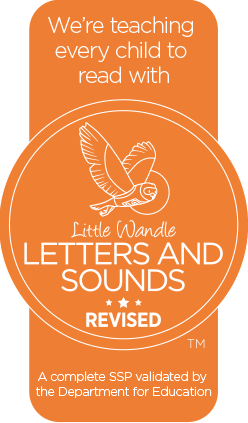ATTENDANCE
At Riverview CofE Primary & Nursery School we expect excellent attendance to ensure a good education for your child. Every child should attend school regularly unless he or she is ill or the school has authorised their absence. If your child is unwell and unable to attend school, please leave a message on our absence line on the first morning of absence with a brief outline of the reason. If we do not receive a reason for their absence, they may receive an unauthorised mark. Where possible please provide the school with medical evidence (e.g. a doctor's appointment card or hospital appointment letter).
If your child is unwell, and you are in any doubt about whether they should attend school, please use the link below for guidance from the NHS.
https://www.nhs.uk/live-well/is-my-child-too-ill-for-school/
Late to School
Registers are taken at 8.35am for Reception to Year 6 and at 9am for Nursery. Children will receive a late mark if they arrive after this time. They will receive an unauthorised mark if they are later than 8.55am for classes Reception to Year 6 and after 9.20am for Nursery.
Exceptional Leave of Absence
There is no automatic entitlement in law to time off during school time to go on holiday. The school will only authorise a leave of absence in term time in exceptional circumstances.
Where a parent wishes to request a leave of absence, a formal request must be made in writing (form below), in advance, to the Headteacher who will consider the application on behalf of the Governors. Consideration will then be given to the student's previous school attendance and that the time requested does not exceed 10 school days in one academic year.
If a holiday is taken without prior authorisation by the school, it will be recorded as an unauthorised absence, the Inclusion Service will be notified and parents may be liable to a Penalty Notice.
Children who have a positive Covid-19 test result
It is not recommended that children are tested for Covid-19 unless directed by a health professional. The latest guidance can be found here.
Children with mild symptoms such as a runny nose, sore throat, or slight cough, who are otherwise well, can continue to come to school as long as they do not have a high temperature. Children can come back to school and resume normal activities when they no longer have a high temperature, and they are well enough to attend.
If a child has a positive Covid-19 test result, they should try to stay at home, and avoid contact with other people for 3 days after the day they took the test. After 3 days, if they feel well enough and do not have a high temperature, the risk of passing the infection on to others is much lower. This is because children and young people tend to be infectious to other people for less time than adults.
Children who usually go to school and who live with someone who has a positive Covid-19 test result should continue to attend school as normal.
Scarlet Fever and Group Strep A Infections
Scarlet fever is caused by bacteria called Group A streptococci (Strep A). The bacteria usually causes a mild infection that can be easily treated with antibiotics. On very rare occasions, the bacteria can get into the bloodstream and cause an illness called invasive Group A (iGAS).
Symptoms
Strep A infections can cause a range of symptoms that parents should be aware of:-
- Sore throat
- Headache
- Fever (which does not respond to paracetamol)
- Swollen glands
- A fine, pinkish or red body rash with a sandpapery feel
- On darker skin, the rash can be more difficult to detect visually but will have a sandpapery feel
If your child becomes unwell with these symptoms, please contact your GP practice or NHS 111 (which operates a 24/7 service), to seek advice. If a child has scarlet fever, they are advised to stay at home until at least 24 hours after the start of antibiotic treatment to avoid spreading the infection to others.
To prevent possible spread, the advice is to continue with the good hygiene practices we put in place during the Covid-19 pandemic:-
- Regular hand-washing
- Sanitising
- Coughing and sneezing into a tissue and putting tissues in the bin.









